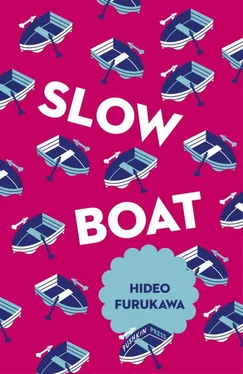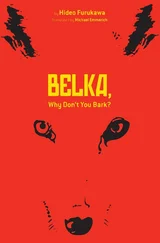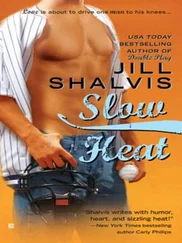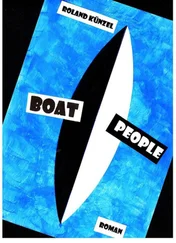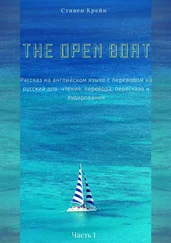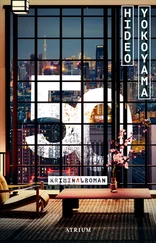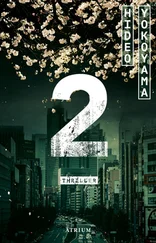TO CHINA
I tried using a map, but no luck. The topography was unclear. If I’m reading the compass right, I’m somewhere west of the Amami Islands. But no ocean means no islands…
The East China Sea is nothing but desert. But I keep my head.
I learn what I can from the campers—where I can get my hands on potable water, cans of food, etc. Bartering is dangerous business, but sustenance is necessary. It just drives home the point— you do what you can to stay alive .
Sometimes surviving means flirting with death.
I check my water supply, drink the bare minimum. In these parts, they sell water in 1.5-litre bottles with Diet Pepsi labels on them.
The sun is my greatest enemy—I try to stay out of its way. And there are nomadic tribes all around (some are just bands of savage children), so I can’t afford to drop my guard. Sometimes I stumble upon the aftermath of their marauding deeds. I see paw prints. Some gangs must be running attack hounds.
When I regained consciousness, I spent two full days walking. No leads on any waterways. Then, this morning, I looked up at the blue blue sky—there were birds flying right over me.
* * *
I heard a steam whistle. A weird whistle—kind of like a tenor sax.
Then, way off in the distance, I saw the shape of a ship.
No, I tell myself, it isn’t that far. Do the math. It’s headed this way, right? Got to get a read on the sail. Got to get ahead of the ship. Got to start footing it.
The soles of my feet were burning up, but I kept going.
After three hours, I came to a thin strip of water. Just wide enough for a single cargo ship. In fact, one was coming this way.
A sailor asks from the deck: “Need a lift?”
I don’t nod.
“No?” he asks.
“Where you going?”
“What, this freighter?”
“Yeah.”
“To China,” he says.
I inform the sailor of my desire to board .
“OK, one ticket. To China.”
LINER NOTES
WRITING ABOUT WHAT I’M WRITING ABOUT
This book demands explanation. You open it up to find the title on the title page. Fair enough. But then there’s a subtitle under it. A strange subtitle—right? You keep going, but the Contents page is no less strange. Some readers might wonder: “Where have I seen these words before? They look kind of familiar.”
These chapter titles are borrowed. Phrases lifted from the work of another writer.
I’ve sampled them.
Maybe that sounds a little too musical. But I’ve never been the sort of writer who lives in an entirely literary world. Pop culture is the air I breathe. I know how it feels to put a record on a turntable, to flip it over and play the other side. And I know how it feels to grip a gamepad or dip my hand into a bag of chips while watching a movie. But music has probably given me the most, and it just keeps giving me more.
Maybe the best gift of all: music has shown me how to survive .
Music comes in many forms. Radio, tape, CD. But the song has a way of moving on its own—from generation to generation. Take the cover song. Singing the hits of the past today. With nothing but the deepest respect for those who came before.
Like with the early Beatles or the Stones. The way they did it.
Now.
There’s no reason you can’t do the same thing with stories. To take your love for the original and situate it in the present. Back to this book. To the subtitle: A Slow Boat to China RMX . A nod to Haruki Murakami’s unforgettable short story—“A Slow Boat to China”. The story where my story begins.
For me, Murakami is at the centre of it all—the roots of my soul.
RMX stands for “remix”. Remixes, covers… It’s easy to get them mixed up. But “misreading” is a big part of what this book is about, so I hope you’ll forgive me. Whenever I think about remixing, I think about this one story I know. It has to do with a well-known remixer, whose name I forget. When an artist comes to him for a track, he doesn’t run to the studio. He puts the song on repeat and goes to bed. He lets it play all night. Then, when he wakes up in the morning, he knows exactly what to do.
That’s what I’m talking about when I talk about remixing.
Unconsciousness. Dreams. And love that has no value other than purity.
This book is dedicated to Tokyo, 2002—and all the years that went into making it.
And to the roots of my soul. Hope he doesn’t mind.
HIDEO FURUKAWA, born in 1966, is an acclaimed and prize-winning writer, hailed by many in Japan’s literary world as a prodigy worthy of inheriting the mantle of Haruki Murakami. He was awarded the Mishima Prize in 2006 for Love . His best-known novel is the 2008 Holy Family , an epic work of alternate history set in north-eastern Japan, where he was born.
DAVID BOYDhas translated stories by Toh EnJoe, Genichiro Takahashi and Hiroko Oyamada, among others. He holds a Master’s degree from the University of Tokyo and is currently a PhD candidate at Princeton University. He lives in Los Angeles, California.
PUSHKIN PRESS
Pushkin Press was founded in 1997, and publishes novels, essays, memoirs, children’s books—everything from timeless classics to the urgent and contemporary.
Our books represent exciting, high-quality writing from around the world: we publish some of the twentieth century’s most widely acclaimed, brilliant authors such as Stefan Zweig, Marcel Aymé, Teffi, Antal Szerb, Gaito Gazdanov and Yasushi Inoue, as well as compelling and award-winning contemporary writers, including Andrés Neuman, Edith Pearlman, Eka Kurniawan and Ayelet Gundar-Goshen.
Pushkin Press publishes the world’s best stories, to be read and read again. Here are just some of the titles from our long and varied list. To discover more, visit www.pushkinpress.com.

THE SPECTRE OF ALEXANDER WOLF
GAITO GAZDANOV
‘A mesmerising work of literature’ Antony Beevor
SUMMER BEFORE THE DARK
VOLKER WEIDERMANN
‘For such a slim book to convey with such poignancy the extinction of a generation of “Great Europeans” is a triumph’ Sunday Telegraph
MESSAGES FROM A LOST WORLD
STEFAN ZWEIG
‘At a time of monetary crisis and political disorder… Zweig’s celebration of the brotherhood of peoples reminds us that there is another way’ The Nation
BINOCULAR VISION
EDITH PEARLMAN
‘A genius of the short story’ Mark Lawson, Guardian
IN THE BEGINNING WAS THE SEA
TOMÁS GONZÁLEZ
‘Smoothly intriguing narrative, with its touches of sinister, Patricia Highsmith-like menace’ Irish Times
BEWARE OF PITY
STEFAN ZWEIG
‘Zweig’s fictional masterpiece’ Guardian
THE ENCOUNTER
PETRU POPESCU
‘A book that suggests new ways of looking at the world and our place within it’ Sunday Telegraph
WAKE UP, SIR!
JONATHAN AMES
‘The novel is extremely funny but it is also sad and poignant, and almost incredibly clever’ Guardian
THE WORLD OF YESTERDAY
STEFAN ZWEIG
‘ The World of Yesterday is one of the greatest memoirs of the twentieth century, as perfect in its evocation of the world Zweig loved, as it is in its portrayal of how that world was destroyed’ David Hare
Читать дальше
